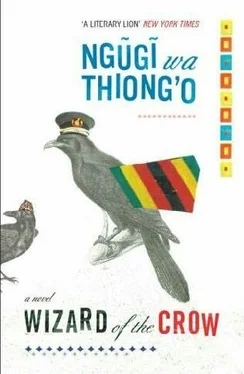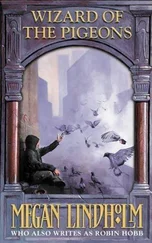The jubilant Machokali intensified his orchestration, and the calling and responding would have gone on for quite a while had the Ruler not gestured to them to sit down and let him hear what the man on his knees had to say for himself.
“There is nobody in the whole world,” Sikiokuu pleaded tremulously, “who does not know that the Ruler is this Country and this Country is His Mighty Country. It is also well known that many other leaders are jealous of that irrevocable identity. All I was saying is that unlicensed queuing should be banned so as not to be exploited by your enemies within and without to question that identity. Otherwise, I am a firm believer that You are the Country and the Country is You, and I propose that this fact be stated in the constitution. I swear before Your Mighty Presence that I shall myself make a motion in Parliament to amend the constitution accordingly.”
The Ruler signaled Machokali to carry on, and it was not lost on anybody that the leader had not only ignored Sikiokuu’s words but had not even asked him to return to his seat. Sikiokuu remained on his knees for the entire meeting.
A triumphant Machokali could not help but beat his rival into the ground. There was no point, he said, in changing the constitution to include something as obvious as the fact that the sun is the source of heat and light. “But I don’t want to get embroiled in this foolishness,” he said. “I want to go back to the report of the police rider. It is obvious that the queuing is connected with Marching to Heaven. Employers and workers knew the project meant economic growth and jobs galore; that was why even before the project had been launched employer and employee stood shoulder to shoulder in the streets of Eldares in support of Marching to Heaven! Has anything like this ever happened in the history of the world? The lion and the lamb lying together? Fear not those who queue in hope but those who fear those who queue in hope. Take a cue from me: use the queue, don’t abuse it. Instead of banning queuing, we should present it to the world as the very picture of a nation lining up behind its leader’s vision.”
The Ruler was pleased with the idea. Ever since the people abandoned him in the park for fear of snakes, he had tried to hatch a scheme that would prove how much they still loved him, how much they desired nothing more than to follow in his footsteps. Here now was an opportunity.
As soon as the other ministers realized that the Ruler was excited by Machokali’s motion, their tongues loosened, each claiming, one after another, that queuing was most intense in his respective region with his constituents singing nothing but songs in praise of Marching to Heaven. A few regions where the mania had yet to break out said they would send word to the grass roots to immediately get busy. Others suggested that the Bank missionaries should tour the city and other parts of the country to see for themselves the extent of popular support for Marching to Heaven.
Even the humbled Sikiokuu tried to swim with the current, claiming that the Ruler was the founding father of all queuing and others were merely following his example. In his capacity as the Minister of State in the Ruler’s office entrusted with security, he, Sikiokuu, would add hundreds of M5S to the queues to ensure that no one would abuse the queuing mania as a referendum on anarchy.
“A queuing referendum for Marching to Heaven,” Big Ben Mambo burst out, resenting Sikiokuu’s continuing attempts to deflate Machokali’s ideas. This triggered a round of political discussion, especially after Big Ben Mambo suggested that the queuing referendum could produce a new theory of politics, a point strongly supported by the Minister of Education. The latter insisted that such a theory, bearing the Buler’s name, could be taught in all Aburirian schools and colleges, supplanting the outmoded theories of Plato, Aristotle, Hobbes, and Pope. Another minister said that the political theories of ancient Greece belonged to the dead and should be thrown out the window. “We cannot allow the sepulchral mud of the dead to besmirch the spectacular mind of the living,” he said, and they all laughed. Even the Buler graced the remark with a smile and a humble opinion.
“Some people think that it is only white people who can come up with new theories, and they are wrong!” he said, and all the ministers chorused back: Yeees!
They had gotten the hint and unanimously selected Machokali to head a committee to write down the Buler’s Theory of Politics and Government.
Fearing that all the blessings would pass him by, Sikiokuu, speaking from his kneeling position, said that by queuing people were already putting theory to practice and only the Buler could claim credit from it. What they needed to do was find a way to thank the people for queuing with such boundless enthusiasm. He himself volunteered to announce the Buler’s gratitude over prime-time radio and TV and to tour the country thanking the people in the name of the Buler for supporting the vision of Marching to Heaven.
Machokali glared at him. He would not give the cunning fellow an opportunity to put a foot in the door of Marching to Heaven. The idea of ensuring that every queue was infiltrated by M5 was excellent, Machokali said, and it showed that Minister Sikiokuu, even on his knees, could be quick on his feet when it mattered. But it was best to leave media to the Minister of Information, Big Ben Mambo, for were the announcement to come from the Buler’s office it would create the impression, totally false, that the people had been coerced into queuing, and this would definitely take away from the positive impression of a spontaneous grassroots anticipation of Marching to Heaven. And even then, a simple statement would suffice.
Years later a few of those present would look back on this moment and wonder, Had Machokali foreseen it all, or in trying to crush his kneeling rival had he stumbled onto something with a significance that could be seen only in hindsight? All they could recall was Machokali whispering almost to himself, “They were four, but we can send five.” Some even claimed that the words were preceded by a light from his eyes so intense that it momentarily lit the room.
“What are you talking about?” the Ruler asked, puzzled.
“The four horsemen in the Book of Revelations,” he said without any hesitation.
“And what has that got to do with us?”
There was absolute silence as Machokali revealed his plan: they should send a rider to each of the five regions-northern, southern, western, eastern, and central-to assess firsthand the heat of the queuing fever and its effect on the general populace. The first thing he would impress upon the five riders selected by him was that they should make haste and not spend a whole week going in circles. He would tell them to roam all Aburiria and take a census of existing queues while conveying the Ruler’s gratitude and pleasure at the queuing and urging even more spontaneous eruptions in support of Marching to Heaven.
Sikiokuu felt outmaneuvered and wished that he could answer with something from the Quran or another holy text. But, mindful of the saying that if you can’t beat them, join them, he argued that the duty of sending out more riders rested entirely with his department, as security matters were involved.
Those ministers who normally monitored the war between the two rivals, always leaning toward the winner, named the struggle that just ended the Battle of the Five Riders, but they were not quite sure which side had won.
As he left the State House, Sikiokuu fumed, and some even say that, like a hippo’s under water, his heavy breathing produced bubbles of air from his mouth and nostrils and that the bubbles surrounded him and his car all the way to the office. The minister was seething with rage. He had to be obedient, but in so being he did not want to further enhance his rival’s standing in the eyes of the Ruler. How could he at once obey the Ruler and avenge himself? He would use the written word to account for the letter of the law, and the spoken to subvert its spirit.
Читать дальше












